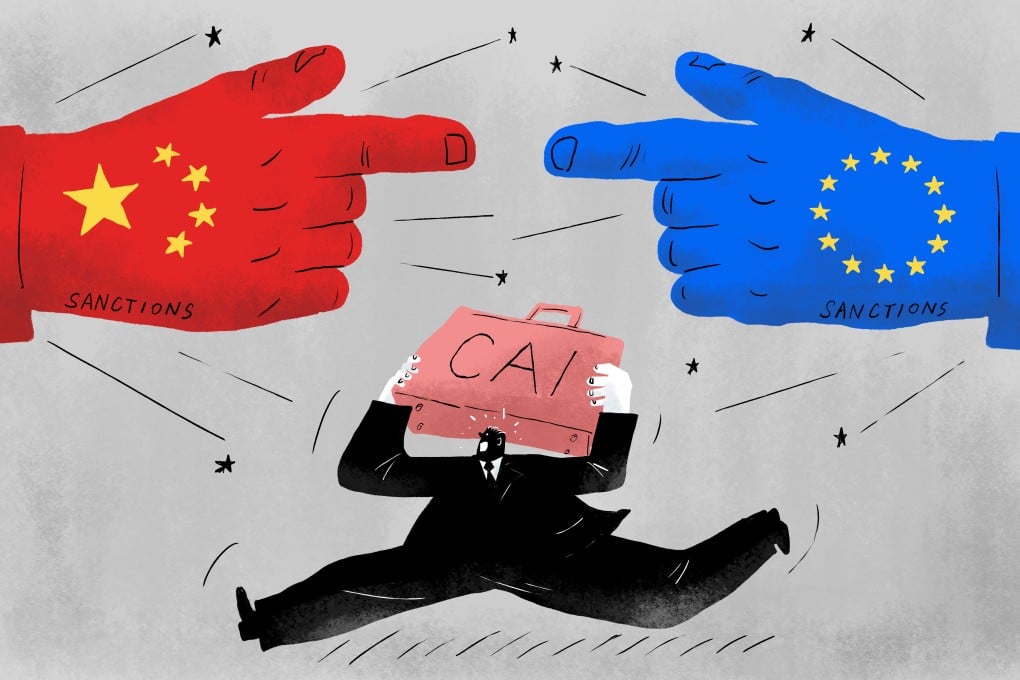Advertisement
Exclusive | China-EU investment deal casts long shadow over Beijing’s vague sanctions against Europeans
- Sanctions imposed by Beijing in March against European politicians, scholars and bodies comes as the European Parliament is due to ratify the CAI
- ‘We have stopped inquiring as it would force the Chinese side to define it,’ says a diplomatic insider
Reading Time:4 minutes
Why you can trust SCMP
99+

When the European Union sanctioned four Chinese officials in March over suspected human rights violations in China’s far western region of Xinjiang, the response from Beijing was swift.
China hit back within hours, imposing its own sanctions against European politicians, scholars and research groups it deemed critical of its policies in Xinjiang.
China’s Ministry of Foreign Affairs said the personnel and their relatives were banned from travelling to China, including Hong Kong and Macau, while their “related companies and institutes” were restricted from interactions with China.
Advertisement
But there has been little indication since of how the Chinese restrictions apply.
Diplomatic sources say Chinese officials have tried to downplay the significance of its sanctions and tried to prove the policies were less forceful than they appear.
Advertisement
The sources say it is all part of an effort to quietly contain any damage to its ties with Europe and limit the fallout on a much bigger play – a comprehensive investment deal with the EU.
Advertisement
Select Voice
Choose your listening speed
Get through articles 2x faster
1.25x
250 WPM
Slow
Average
Fast
1.25x